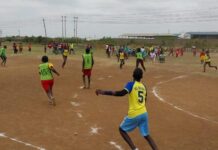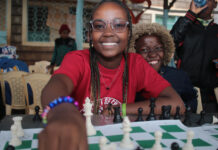
Do you remember an instance when one of your primary school teachers beat you up for not scoring an A in their teaching subject? Was it enjoyable?
Gauging and tying our children’s future on an examination grade is as annoying.
Recent results
On 28 March 2022, shouts of joy filled the airwaves as pupils, parents and villagers celebrated the youngsters who passed their 2021 Kenya Certificate of Primary Education (KCPE) examinations with flying colors.
Usually, it’s a season of the year when, as top performers get celebrated and treated to warm shoulders from relatives and friends and news coverage, their counterparts, who didn’t attain the marks we expected, get soaked in tears, shame and seclusion.
A significant number of them slip from the previous examination-induced anxiety and wallow in stress and depression.
It is not just in Kenya but, typically, in the better part of our African continent.
According to Kenya’s Education Cabinet Secretary, Prof. George Magoha, this year’s 2021 KCPE examinations saw a whopping 1,214,031 pupils write the papers.
Of this number, only 0.98% (11,857) scored between 400 and 500 marks, while 26% (315,275) scored between 300 and 400.
47% (578,197) of the 2021 class scooped between 200 and 300 marks, an average score.
This data shows that a whole lot of slightly over 25% (at least 308, 702) of young minds attained less than 200 marks out of the target of 500 marks.
That means that out of every four students who wrote the 2021 KCPE, one scored less than 200 marks.
If these young minds, coupled with many others who did not score as they wished, are left without the mental help and moral support they require, our country will have a depressed generation in the next five years or less.
We may not feel it today or tomorrow, but it’s brewing.
By the end of April (as chances have it), the KCSE results of the approximately 831,015 students recently grilled will be out. The statistics won’t be any different, either.
Some will fail while others will pass. We’ll celebrate the bright academic minds and not the innovative, non-academic-oriented minds. Saddening!
Where the problem lies
In Kenya, for long enough, we have lagged in redefining success for our youngsters.
We have tied our children’s future to education and, in their minds, ingrained the idea that failing to get good exam grades is a show of mental weakness and academic imbecility.
Though a lousy image we know it is, on it, we have insisted.
The disparity breaks the hearts of the many who perform poorly and drags some of them into depression and mental health issues. We paint the few top performers as the only members the society has always needed.
Instead of helping the differently-abled children who, for many reasons (which we rarely care to know), have failed in their KCPE or/and KCSE examinations, we wonder why they had to come from our families.
Nobody likes failing, but it depends on whether you hold the correct definition of failure.
What does research say?
A 2020 research estimates that one in every four adolescents is either anxious or battling clinical depression. 25% is a worrying percentage in this case.
Majorly attributing the situation to the pressure to attain high academic scores, among other causes, shows how we have failed as a society and academicians.
The media is yet to spare a thought for the many pupils and students who failed their exams and are now ensconced in shame and depression and are wondering why they exist.
Our academic system is shaped in a way that unless you pass your exams, there is no other proof that you’re intelligent. There’s no room for shining outside academics in it, holistically thinking.
What should be done?
Thanks to the changes being made and the ongoing transition to a Competency-Based Curriculum (CBC), though not without challenges. But at least, if by any chance, it won’t be the way out, it will lead us to the way out because so far, we’re treading wisely.
I long for a time when the reporters will shift their lenses, focus and give some (if not much) airtime to the “academic losers,” as they’re often tagged.
A time when they’ll be sought and their voices heard and a fair judgment rendered─ for I am persuaded that their stories are valid, too.
Only this can help us understand the psychological turmoil and the sea of thoughts (some suicidal) clattering their minds and inform us how to help them effectively.
Beyond any doubt, I know that our children’s future is not tied to academic grades alone.
I, however, acknowledge the power of education and its significant role in enlightening, shaping and preparing learners for a bright future and that’s why I’m sparing no effort in my university studies!
But, a three-day KCPE examination and a three-week KCSE examination should not be used as the only gauging factor of someone’s intelligence and suitability in society. All of us cannot be academics.
What if the student was sick throughout the examination period or was grieving the loss of a loved one?
Research reminds us that in 2015, a whopping 5,101 students (almost 1% of those who sat for the 2015 KCSE exam) were caught cheating in the national examinations. This was 70% higher than the 2014 cheating lot of 2,975.
Some others were never caught, probably.
As of now, due to the sharp cutting edges of the National Examination Council (Amendment) Bill 2016, the numbers have significantly reduced.
Assenting to the Bill in 2017, President Uhuru Kenyatta warned that “The offense shall attract a penalty of a term not exceeding five years or a fine not exceeding five million shillings or both.”
But the big question is, why do they cheat?
One of the answers would be that when these adolescents think of the trauma, the insults, the shame, the psychological and the physical seclusion examination failure comes along with, they dare to cheat.
However, it’s not an excuse, but the setting has pushed them to that corner.
Redeeming the youngsters
Redefining success for these adolescents would radically change their perspective.
Repainting it as not a matter of life and death would do the young brains enough justice.
Embracing them and guiding them towards other essential choices in life, showing them love and acceptance, celebrating them for finishing that academic level and their other “works well done” outside academics would cheer them up.
On their part, youths should spare no effort in achieving their best in academics.
Training teachers to teach without an inclination towards passing exams and imparting knowledge and skills would change the learners’ perspective.
Hasting the efforts towards a curriculum change should be our government’s priority.
I hope that the changes being done in Kenya to embrace talent and competency, tapped and gauged through a continuous assessment built on a Competency-Based Curriculum (CBC), will change the old, bad song.
Therefore, all willing to see a change must brace themselves for the murky waters, roll up their sleeves for the task ahead and face the challenges of the new curriculum.
It must succeed if these young minds are to get oriented to a future based not on their knowledge of a few tricky questions assessed in a three-day or three-week examination.
The time has never been as ripe before for everyone to rise against any form of harm (psychological or physical) against those who didn’t pass their exams as we wanted them to.
It’s the right time to listen to them and encourage them to diverge, take a different path in life, pursue other interests and see success from a different viewpoint.
The future of our children isn’t tied to education grades only.
Music, innovation, embracing technical skills, agriculture, talent and other paths less taken would lead the young minds to greatness.
Degrees aren’t the only way out. Skills, innovation and talent, all applicable in the job market, are.
What do you think?
YOU CAN ALSO READ: Help KCPE champions join schools they will be selected to









































